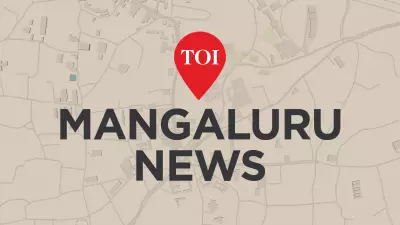
Lieutenant Governor of Ladakh, Brigadier (Retd) B D Mishra, has openly acknowledged the growing public discontent in the region regarding what many perceive as imbalanced representation during crucial discussions with the Central government. This admission comes amid ongoing protests and demands for greater political autonomy and constitutional protections.
Public Dissatisfaction Reaches Breaking Point
The Lieutenant Governor made these significant remarks during a public function in Leh, where he addressed concerns about the negotiation process between Ladakh and the Central government. Brigadier Mishra confirmed that the public sentiment reflects dissatisfaction with how representation has been handled in these critical discussions that will shape Ladakh's future as a Union Territory.
This public acknowledgment from the highest office in the Union Territory underscores the seriousness of the situation. The LG's statement validates the concerns raised by various political and social groups in Ladakh who have been protesting what they describe as inadequate representation in talks that directly affect their constitutional rights and political future.
Ongoing Demands for Constitutional Safeguards
The core issue revolves around the demands for constitutional safeguards under the Sixth Schedule of the Indian Constitution. Various organizations in Ladakh have been consistently pushing for these protections to preserve the region's unique cultural identity and ensure land and job security for local residents.
The Sixth Schedule of the Constitution provides for the administration of tribal areas through autonomous district councils in several northeastern states. Ladakhi groups argue that similar protections are essential for their region to prevent demographic changes and protect the interests of the local population.
Despite multiple rounds of discussions between Ladakhi leaders and Central government representatives, a satisfactory resolution remains elusive. The perceived imbalance in representation has become a major sticking point, with local groups feeling their concerns aren't being adequately addressed at the negotiation table.
Broader Implications and Future Prospects
The Lieutenant Governor's admission signals a critical moment in Ladakh's political journey since it became a Union Territory in 2019. His acknowledgment of public discontent suggests that the administration recognizes the gravity of the situation and the need for more inclusive dialogue processes.
The ongoing protests and public demonstrations across Ladakh have brought increased attention to the region's demands. Various political parties, civil society organizations, and student groups have united in their call for more balanced representation in talks with the Centre.
As the situation continues to evolve, all eyes remain on how the Central government will respond to these concerns. The need for a resolution that addresses both the constitutional demands and the representation issues has become increasingly urgent to maintain peace and stability in the strategically important region.
The Lieutenant Governor's statement marks a significant development in the ongoing dialogue between Ladakh and the Central government, potentially paving the way for more inclusive discussions that could lead to a mutually acceptable solution for all stakeholders involved.





